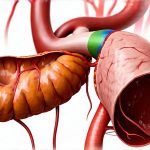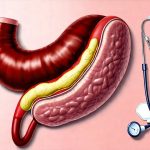Smoking is deeply ingrained in many cultures, often associated with stress relief or social habits. However, beyond the well-known respiratory and cardiovascular risks, lies a significant impact on digestive health – an area frequently overlooked when discussing the consequences of tobacco use. This article will delve into the ways smoking can disrupt the delicate balance of the gastrointestinal system, potentially leading to discomfort and various functional issues.
The effects aren’t always immediate or dramatic; rather, they often accumulate over time, subtly altering digestive processes and increasing susceptibility to certain conditions. Understanding these connections is crucial for anyone who smokes, or those concerned about a smoker’s well-being, as it highlights another compelling reason to consider quitting or reducing tobacco consumption.
The Broad Strokes: How Smoking Interferes with Digestion
Smoking impacts digestion on multiple levels, from the mouth and esophagus all the way down to the intestines. It isn’t simply about inhaling toxins; the chemicals in cigarette smoke alter physiological processes, influencing everything from saliva production to stomach acid regulation and intestinal motility. This disruption can manifest as a range of digestive complaints, often subtle initially but potentially escalating into more serious problems over time.
The act of smoking itself also introduces physical stress on the body, activating the sympathetic nervous system (the “fight or flight” response). While temporary activation is normal, chronic activation from repeated smoking further contributes to imbalances within the digestive system and can exacerbate existing conditions.
Beyond the Stomach: Systemic Effects
Smoking’s influence extends beyond just the stomach itself. The chemicals absorbed through smoking – nicotine, carbon monoxide, and numerous other toxins – enter the bloodstream and affect various organs including those critical for digestion. This systemic impact creates a cascade of effects that ultimately compromise overall digestive function and potentially increase vulnerability to gastrointestinal diseases.
Acid Reflux & Heartburn
Smoking is strongly linked to increased acid reflux and heartburn. Nicotine weakens the lower esophageal sphincter (LES), the muscular valve that prevents stomach acid from flowing back up into the esophagus. A weakened LES allows for more frequent and prolonged exposure of the esophageal lining to acidic contents, leading to irritation, inflammation, and ultimately, symptoms like heartburn. Additionally, smoking stimulates gastric acid production, further increasing the volume of potentially refluxed material.
Peptic Ulcers & Gastritis
The risk of developing peptic ulcers – sores that develop in the stomach or duodenum – is significantly higher among smokers. While Helicobacter pylori infection is a primary cause, smoking impedes healing and increases the likelihood of recurrence. It also damages the protective lining of the stomach, making it more susceptible to acid erosion and inflammation (gastritis). Moreover, smoking reduces blood flow to the digestive tract, hindering the natural repair mechanisms needed for ulcer recovery.
Irritable Bowel Syndrome & Inflammatory Bowel Disease
While a direct causal link is still being researched, there’s growing evidence suggesting smoking can worsen symptoms of Irritable Bowel Syndrome (IBS) and potentially increase the risk of developing Inflammatory Bowel Disease (IBD), which includes Crohn’s disease and ulcerative colitis. Smoking alters gut motility – the speed at which food moves through the digestive tract – leading to diarrhea or constipation, common IBS symptoms. For IBD, smoking appears to affect the immune response in the gut, potentially exacerbating inflammation and hindering treatment effectiveness. It also increases oxidative stress within the intestinal lining.
The connections between smoking and digestive discomfort are complex and multifaceted. While quitting smoking is undoubtedly challenging, it offers substantial benefits beyond respiratory health – including a significant improvement in digestive function and overall well-being. Reducing or eliminating tobacco use can help restore balance to the gastrointestinal system, minimizing irritation, promoting healing, and reducing the risk of developing more serious digestive conditions over time. It’s important to remember that lifestyle changes, combined with appropriate medical attention when needed, are key to managing digestive health effectively, especially for those who have a history of smoking.


















